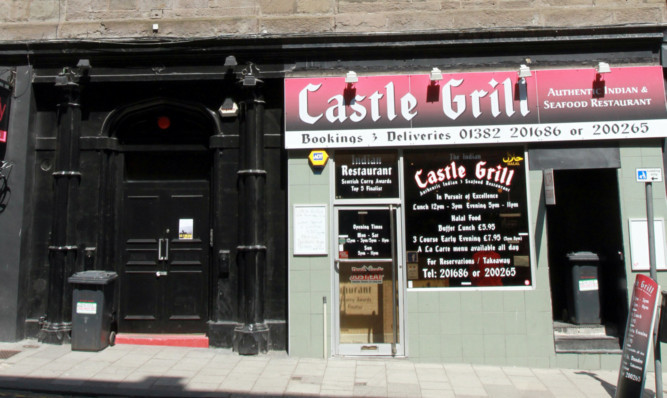Dundee music venue Non-Zero’s received a stay of execution when a review of its licence was deferred until September.
Members of the licensing board agreed to put a decision off to allow the venue operators to consult with sound insulation experts over noise complaints from a downstairs restaurant.
Board convener David Bowes also told David Neill he should use the time between now and then to mediate with the operators of the Castle Grill in Castle Street to see if a compromise can be found.
Mr Neill had been brought before the board to answer a complaint raised against Non-Zero’s for excessive noise, which had resulted in light fittings shaking and the vibrations from the bass resonating through the walls and the floors of the restaurant.
Licencing standards officer Simon Goulding had visited the restaurant following a complaint from Patrick Verma, the Castle Grill manager, in October.
During the meeting the LSOs could clearly hear live music being played from Non-Zero’s, which was causing a nuisance to him and also the premises manager, staff and customers.
Mr Goulding spoke to Mr Neill that evening and he indicated he would follow the advice of the LSOs.
However, Mr Verma complained and LSOs revisited the premises a further four times up to April 4 this year, with “unacceptable” levels of noise still being heard.
Mr Neill had been spoken to on three separate occasions, Mr Goulding said, but little or no action had been taken to resolve the problem.
An agent for Non-Zero’s moved that the complaint should be rendered incompetent on the grounds that the restaurant itself was not making the official complaint.
She said the case involved “licensing standards officers acting as solicitors for the persons complaining”, adding: “It is not the duty of LSOs to make the application for the complainer, who has not made a complaint.
“In this particular matter they have absolutely no grounds to put forward this application for a review.”
She also moved that the licensing board should only be dealing with the premises’ alcohol licence and not with noise nuisance matters, which should be raised through the environment department or through a court interdict.
She said it had been indicated to her that the head of the environment department thought there were no grounds as it was not a public nuisance “it is a private nuisance”.
She added that a campaign had been started on Facebook, with more than 750 people showing their support for the premises in a very short time.
Licensing solicitor Brian Woodcock told the board that it was the concern of the LSOs to raise any problems about noise nuisance and said the distinction between public nuisance and private nuisance was a part of the English legislation.
“We just have nuisance in Scotland,” he said.
He said as a nuisance had been caused to staff and customers, some of whom had walked out due to the disturbance, it was a public nuisance and was therefore competent.
Mr Neill said that he had visited the restaurant and sought agreement on times when the sound system could be played at a lower level.
“We agreed that we would keep it down until 9.30pm, then raise it a little and at 10pm, when the restaurant was usually pretty empty, we could turn it up again,” he said.
“I felt I was complying with that and it was only when I got that final warning that I realised it was coming to this.”
